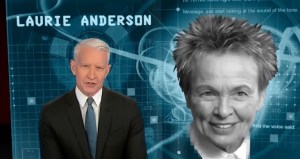On a recent podcast about grief, artist Laurie Anderson revealed to Anderson Cooper that she felt sad without being sad when her husband, rocker Lou Reed died in 2013. She came to this awareness at a class on the Tibetan Book of the Dead. The teacher, Bob Thurman, said there is no dead. Dead doesn’t exist. He was referring, in part, to post mortem existence.
 Different concepts of the afterlife exist in most religions and philosophies. For atheists who believe nothing happens after death,Thurman, a Tibetan Buddhist, teaches there is no nothing. Dead is not nothing.
Different concepts of the afterlife exist in most religions and philosophies. For atheists who believe nothing happens after death,Thurman, a Tibetan Buddhist, teaches there is no nothing. Dead is not nothing.
I’m about as sure of what happens when the body breathes its last as I am of tomorrow’s weather. Oh, I tacitly agree with those who suggest I’ll see my dead dog again, the same way I concur it’s going to snow tomorrow. Maybe. Maybe not. Surely, dead is not nothing?
On November 22,1963, my mother called from New Jersey to the Catholic boarding school I attended in southern Virginia. I picked up the black handle dangling from its cord in the one allowable phone booth in the hall.
“Kennedy’s been shot.” She said.
I replied, “No. He’s dead. It’s on the radio.”
I was seventeen and already tuned in. Politics had grabbed me as a pre-teenager watching the Vietnam war on TV. By the time Martin Luther King Jr. was assassinated, I, a twenty-two year old hippie, had been to two marches on Washington and written hundreds of letters to Congress and President Johnson. I was in support of the Civil Rights bill, the Voting Rights bill, banning the bomb and against the Vietnam war. Anytime the morning news stirred an injustice I had to fix, I reached for my stash of pre-stamped postcards to fire off letters-to-the-editor. I harangued my friends—at work, in bars, on the beach, at parties—to think the way I did.
MLK’s admonition, “Our lives begin to end the day we become silent about things that matter,” initially whipped me into a frenzy of activism—more letters, more phone calls, more marches, more recruiting. Then in his “Drum Major Instinct,” speech in 1968 he preached to act as a servant, not a savior. It is noble to help just one person, change one person’s viewpoint, get one person to vote.
DNA has proven dead is not dead. DNA, our physical manifestation of life itself, apparently lives forever. Anyone who has had a DNA test questions the trace variants of first peoples, like Neanderthal, listed in their results. Some religions teach physical immortality in that our dead bodies will rise or have risen to live in Paradise. Wherever our raised bodies take up residence, will they have our same DNA?
The essence of Martin Luther King’s DNA lives in the generative marrow of his words. I always feel sad without being sad on his birthday. His death transitioned into the endorphins between my dreams and awareness. He lives in that zero-gravity mirage of my inner life that says, “get out there, be brave, do it, say it.”
Yep. Dead is not nothing.
Listen: All There Is With Anderson Cooper and Laurie Anderson Podcast
Excellent. Well researched and philosophy mixed with how people live their lives. Good history of you and our country.
Annette👍
Sent from my iPhone
LikeLiked by 1 person
Regan, I love this. It is in keeping with everything I believe about life and death. Brilliant!!!
LikeLiked by 1 person
Mel. I love writing about death!
LikeLike
I love receiving your memoirs. Always fascinating and you are a terrific writer!!! Carol
LikeLiked by 1 person
Thanks Carol. Love you.
LikeLike
I subscribe to the theory that as long as someone remembers you, you are not dead. As for myself, I’m hoping to go to Paradise .. . Kentucky, that is.
LikeLiked by 1 person